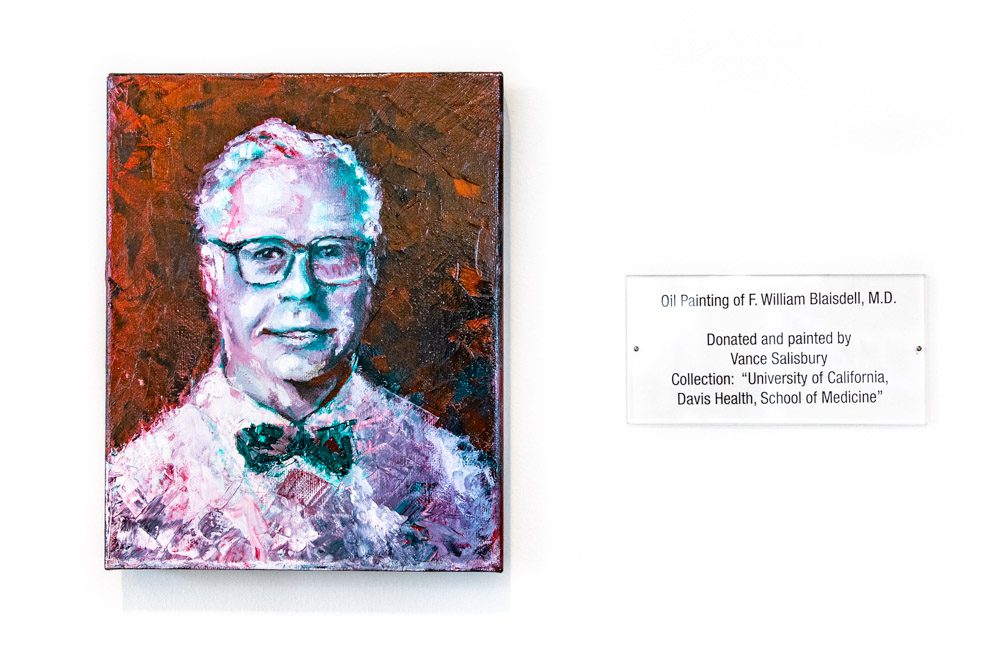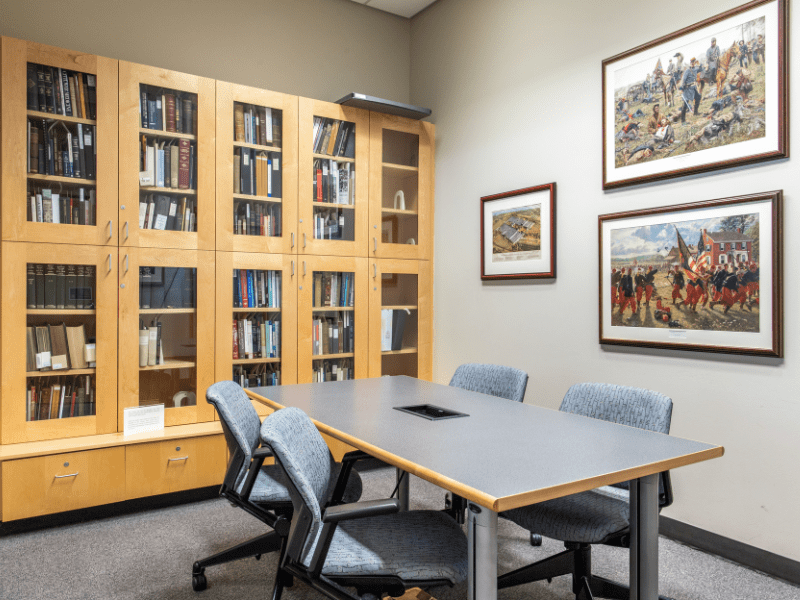10 Cool Things About Blaisdell Medical Library
Happy National Library Week! Today we’re putting a spotlight on Blaisdell Medical Library, aka BML — one of the coolest places on the UC Davis Health Campus in Sacramento. It’s available for all UCDH students, staff and faculty.
Think we might be exaggerating? Just take a look at this list and then come see for yourself!
1. 24/7 access
BML is accessible 24/7, 365 days a year, even during non-staffed hours. If you have a UCDH badge, you have access.
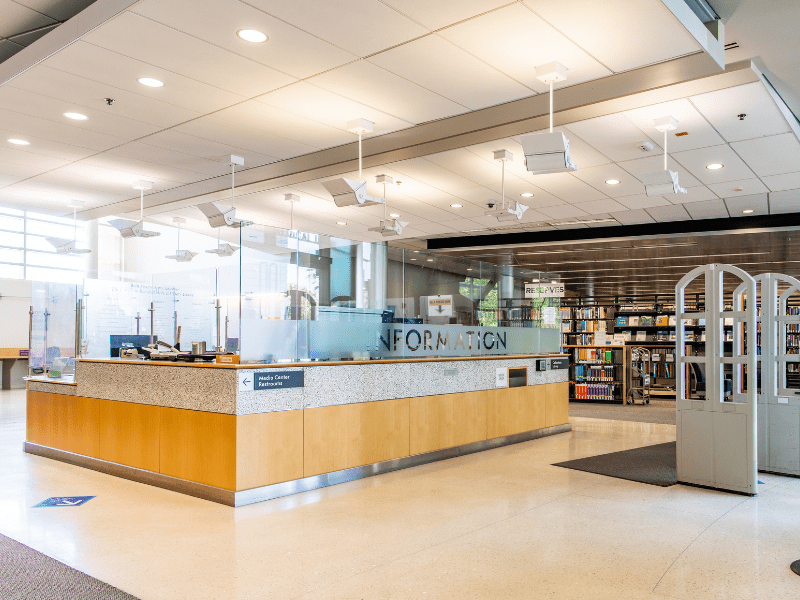
2. Study spaces
Want a Collab Room to go over a presentation with a classmate or coworker? We got ‘em, as well as study rooms, study carrels, computer workstations and bench-style desks. Use the online Room Reservation system to schedule any of our collab or study rooms!
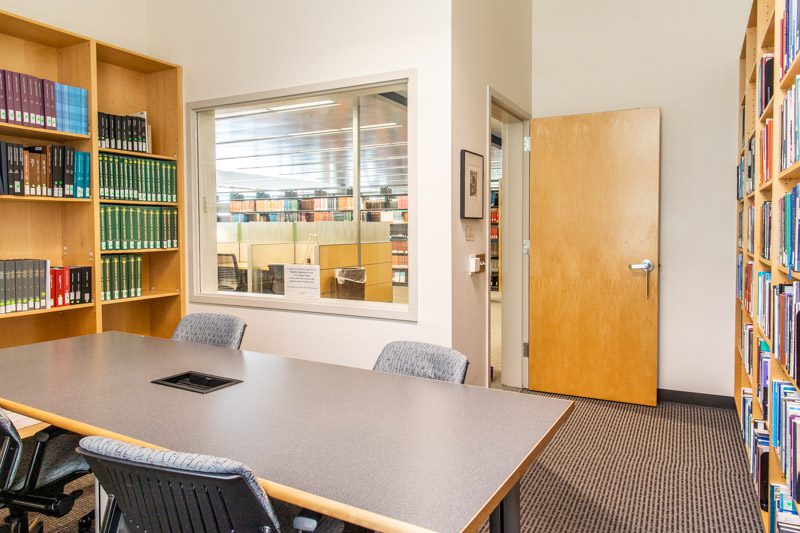
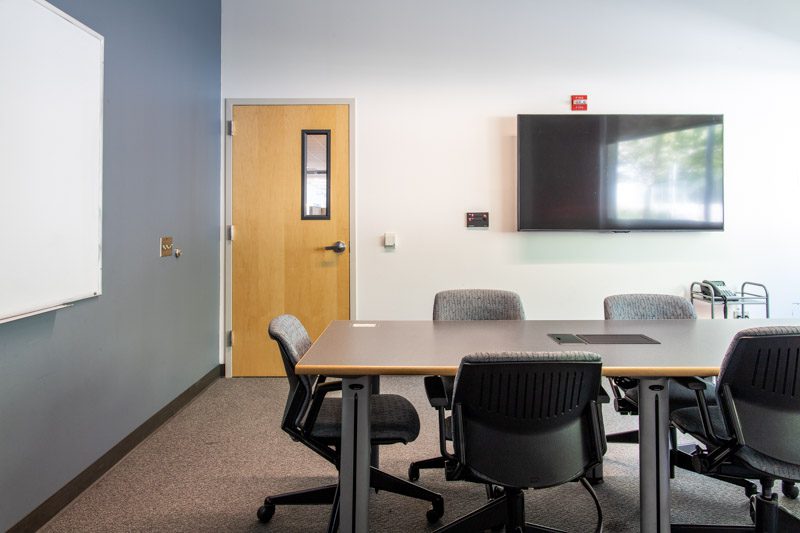
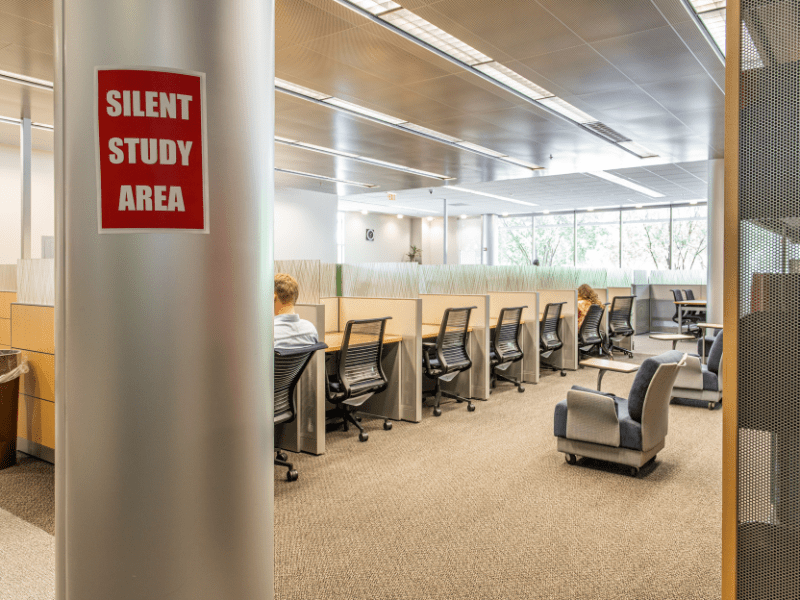
3. Relaxation zone
We have comfy couches and armchairs when you just want to kick back and relax for a bit. Take a nap, read a magazine or release some stress with the adult coloring sheets and puzzles we have available.
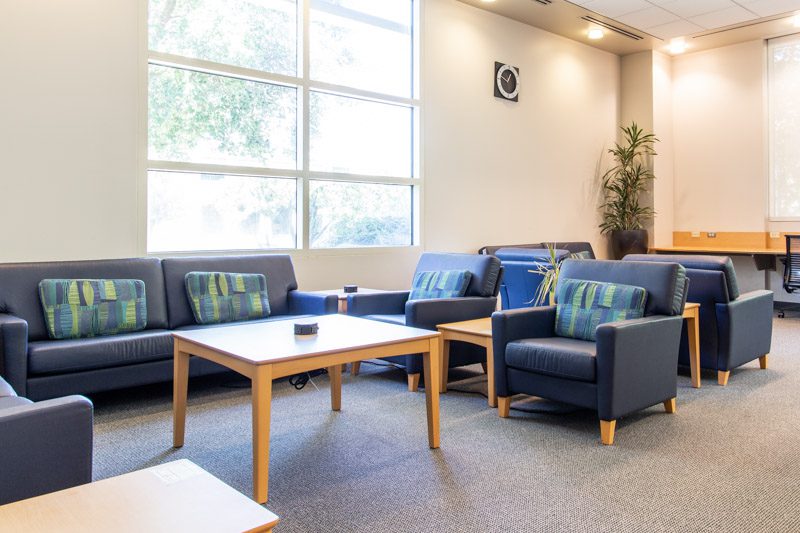
4. Digital and print resources
We have scads of evidence-based practice resources for you! Need print course reserves and reading lists, test prep books or general collection print material? We have it, as well as databases, point-of-care apps, clinical tools, eBooks, and journal articles, including PubMed, UpToDate, CINAHL Embase and more.
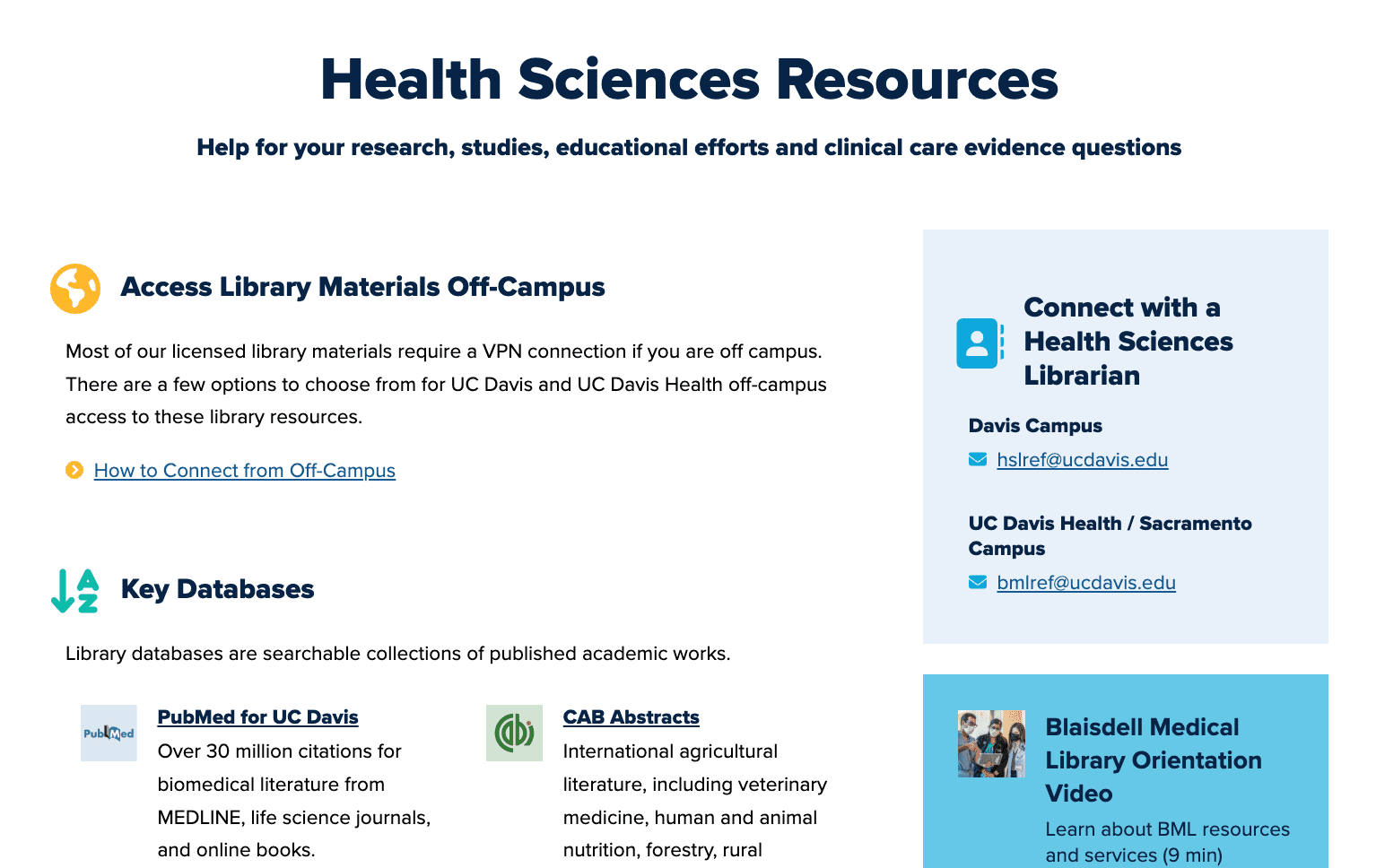
5. Friendly and informative librarians and staff
Need help? A research consult or a systematic review? Contact our terrific librarians at bmlref@ucdavis.edu.
Have questions about Interlibrary Loan, library access, VPNs or general library questions? Email bmlcirc@ucdavis.edu, or stop by the Service Desk during staffed hours. BML is here to make your life easier.
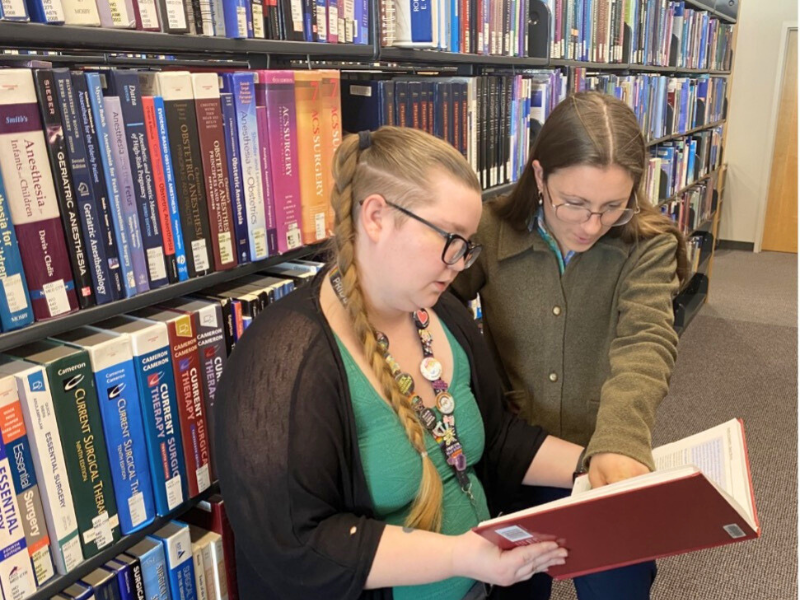
6. MeeScan? YouScan!
We have a new self-checkout tablet with easy on-screen directions at the Service Desk, available to you 24/7! Give it a try next time you’re in BML.
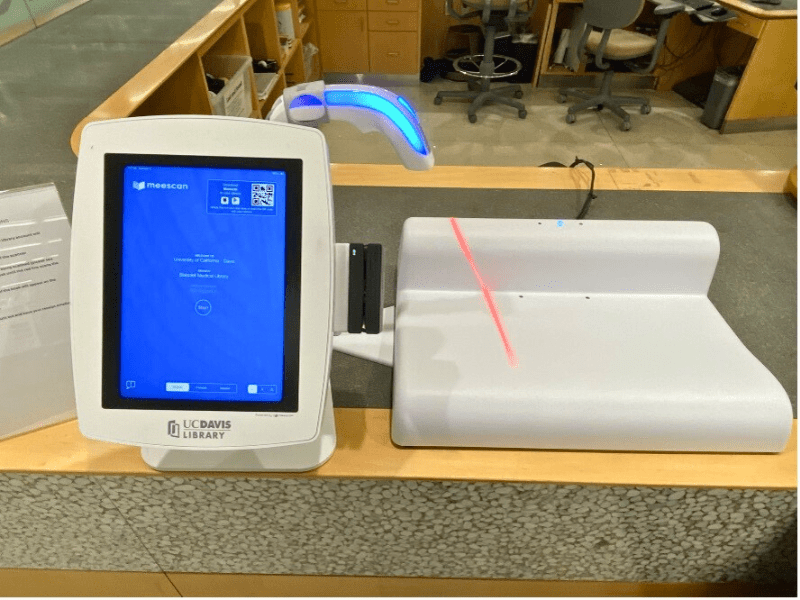
7. Study aids
We have whiteboards and monitor risers scattered around the study spaces, and there are calculators, headphones and chargers available for checkout. A basket of foam earplugs is available on the Service Desk counter by the MeeScan self-checkout machine.
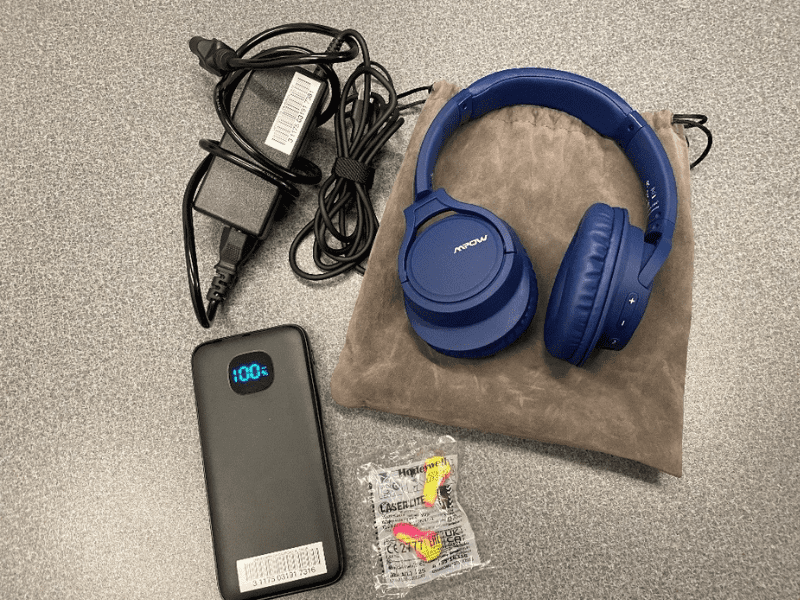

8. Interlibrary loan
Can’t find what you need in UC Davis Library’s collections? Fret not, our complimentary Interlibrary Loan (ILL) service lets you request physical books and scanned chapters or articles from other UC libraries and beyond. All UCDH affiliates with a badge can pick up books from the BML hold shelf or have them delivered through our home delivery service. Scanned articles and chapters are delivered to you directly via email.
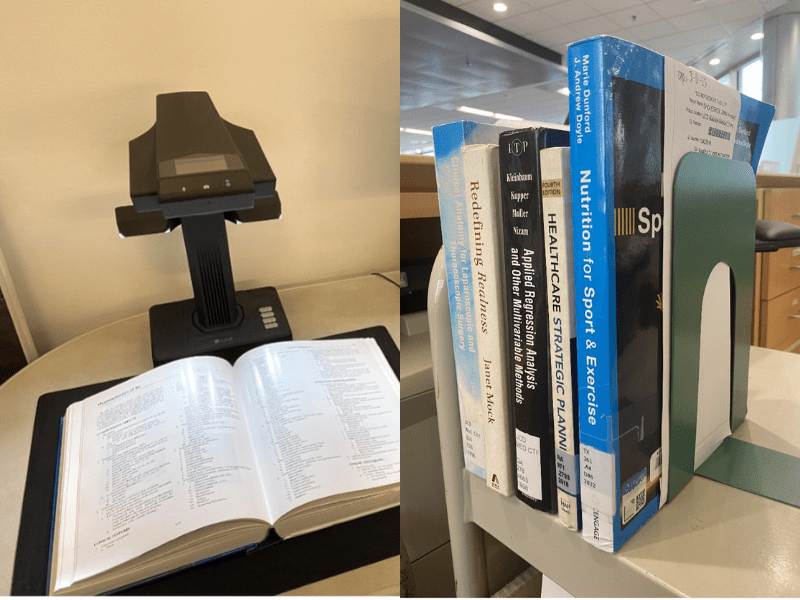
9. Board games
Even hardworking students, staff and faculty need a fun game night, and BML is here to fill those needs! We have over 10 fun medical-themed board games, from Diagnose This to Operation.

10. BML’s namesake was a pretty cool guy
Considered the founder of modern trauma care, Dr. F. William Blaisdell (1927-2020) was a renowned trauma surgeon and department chair of the UC Davis Department of Surgery from 1978-1995. His dedication to health sciences education was so well known that our medical library was named in his honor.
Dr. Blaisdell’s personal papers and research are held in the Archives and Special Collections department at Shields Library, and his personal collection on Civil War medicine is located in the Blaisdell Study Room at BML. We are really proud of our namesake!
